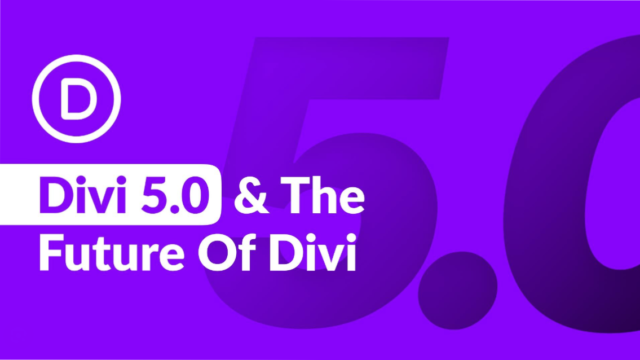Integrating artificial intelligence (AI) into the adult entertainment industry is sparking excitement and controversy. This month, Berlin will host the launch of the world’s first cyber brothel, allowing customers to book sessions with AI sex dolls. This groundbreaking development reflects a
trend toward incorporating generative AI technologies into adult entertainment, with AI companion apps already enjoying massive popularity. However, while AI promises new and innovative experiences, it raises significant ethical, societal, and privacy concerns that need careful consideration.
The Allure of AI in Adult Entertainment
The rise of AI in adult entertainment is driven by the demand for non-judgmental and innovative experiences. Philipp Fussenegger, the founder of Cybrothel, highlights that many individuals feel more comfortable sharing intimate matters with AI because it provides a judgment-free environment. The success of AI companion apps, which have achieved over 225 million downloads on the Google Play Store, underscores this consumer interest. These AI applications offer a safe space for users to explore their fantasies, providing interactive experiences that traditional services cannot match.
Despite its appeal, integrating AI into adult entertainment is challenging. One significant concern is the potential for inherent biases in AI, which can perpetuate harmful stereotypes about gender and sexuality. Dr Kerry McInerney from the Leverhulme Centre for the Future of Intelligence warns that sex chatbots trained on biased data might reinforce retrograde views, undermining the diversity and complexity of human sexual experiences. This risk underscores the need for ethical guidelines in developing AI systems for adult entertainment.
Ethical and Societal Concerns
The ethical implications of AI in adult entertainment extend beyond biases to the potential for addiction and unrealistic expectations. Privacy researcher Misha Rykov points out that AI chatbots can be highly addictive, especially for individuals with mental health challenges, leading to dependency and unhealthy behaviors. The addictive nature of these AI systems highlights the need for responsible use and the implementation of safeguards to prevent adverse impacts on mental health and well-being.
Privacy is another critical issue, with AI companion apps collecting extensive personal data that is often shared with third parties. According to Rykov, many of these apps do not allow users to delete their personal data, raising concerns about data privacy and security. This aspect of AI integration in adult entertainment emphasizes the necessity for robust privacy protections and transparency about data collection and usage practices, to safeguard users’ personal information.
Impact on Real-World Relationships
Critics also express concerns about the potential impact of AI interactions on real-world relationships. Tamara Hoyton from Relate warns that AI-driven experiences could create unrealistic expectations, leading to disappointment in real encounters. The immersive and tailored nature of AI interactions might foster an unrealistic sense of entitlement and assumption of consent based on the compliance of AI objects. These concerns highlight the need for a balanced approach to integrating AI into intimate aspects of human life, ensuring that such technologies do not distort human interactions and relationships.
Proponents argue that AI can enhance rather than replace human interactions, providing new ways to explore personal fantasies. Philipp Hamburger from Lovehoney emphasizes that AI should augment the sexual experience without replacing it, drawing a clear line between enhancement and substitution. This perspective suggests that AI can be used responsibly to enrich personal experiences while maintaining the value of human intimacy and connection.
The Future of AI in Adult Entertainment
Despite the ethical and societal concerns, some believe AI could positively impact the adult entertainment industry by addressing longstanding issues related to explicit content creation. Ruben Cruz from The Clueless Agency argues that AI can help mitigate ethical concerns by ensuring that explicit content is not created using real people. This approach aims to reduce the exploitation and sexualization of individuals, offering a more ethical alternative for content creation in the adult entertainment sector.
As the industry continues to evolve, it is crucial to balance the benefits of AI-driven experiences with the ethical and societal challenges they present. This involves ensuring that AI systems are developed and used in ways that respect privacy, avoid reinforcing harmful stereotypes, and do not replace or distort human interactions. The responsible use of AI in adult entertainment has the potential to enhance personal experiences while addressing longstanding issues related to explicit content and exploitation.
Conclusion
The integration of AI in adult entertainment represents a complex interplay of innovation, ethical considerations, and societal implications. AI technologies offer new and exciting ways for individuals to explore their fantasies in a non-judgmental and interactive environment. However, the potential biases, privacy concerns, and impact on real-world relationships underscore the need for careful and responsible deployment of AI in this context.
As AI continues to shape the future of adult entertainment, it is essential to address these challenges while embracing the opportunities presented by AI. By ensuring that AI is used ethically, the industry can enhance personal experiences and offer a more responsible and enriching approach to adult entertainment, benefiting both consumers and society as a whole.










